
Centennial Fellowship Alumni
Climate Change
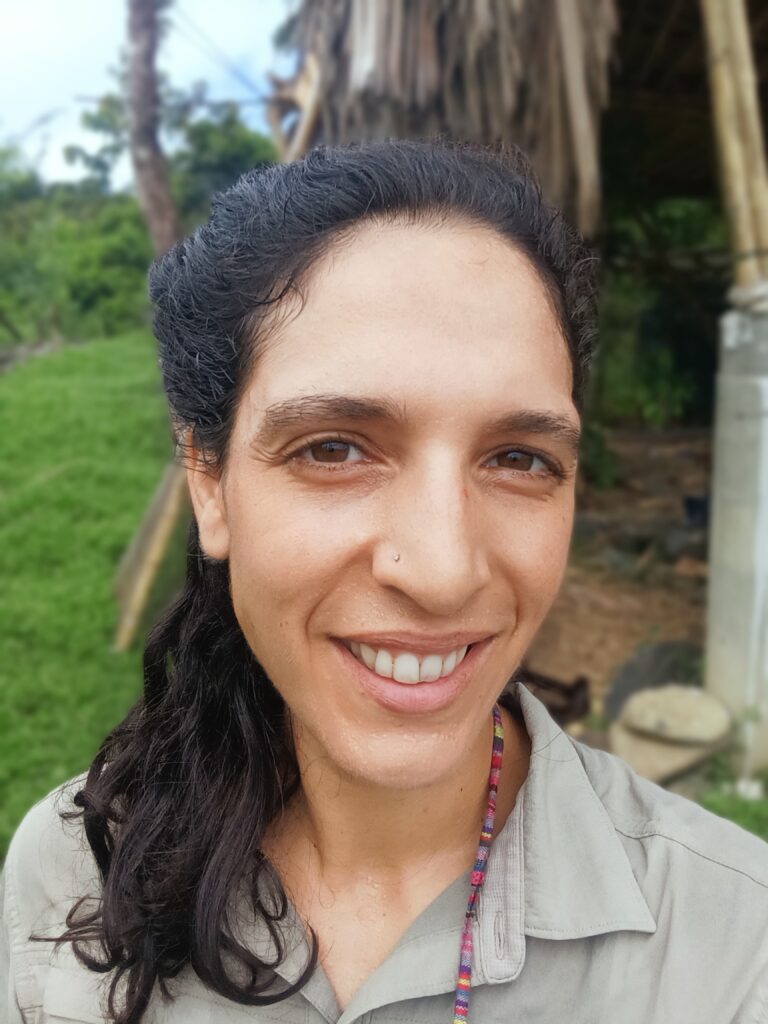
Jessica Ausinheiler
IIE Rodman Rockefeller Centennial Fellow
Innovation in Smallholder Payment for Conservation Services
Fulbright Scholar to Panama, 2020-2021
The project seeks to incentivize smallholders to regrow rainforest in critical areas of the biological corridor in Panama by paying them for “conservation services” (e.g., carbon storage / sequestration and biodiversity), at a time when Panama is designing its carbon market. The project will design and map the implementation of a system for funding smallholders’ conservation services that has the buy-in of key stakeholders. It will engage smallholders who are currently excluded from payments because of expensive accreditation, monitoring, and reporting, and the payers of conservation services. The project seeks to increase smallholder participation in conservation and a commensurate decrease in smallholder deforestation in Panama and globally.
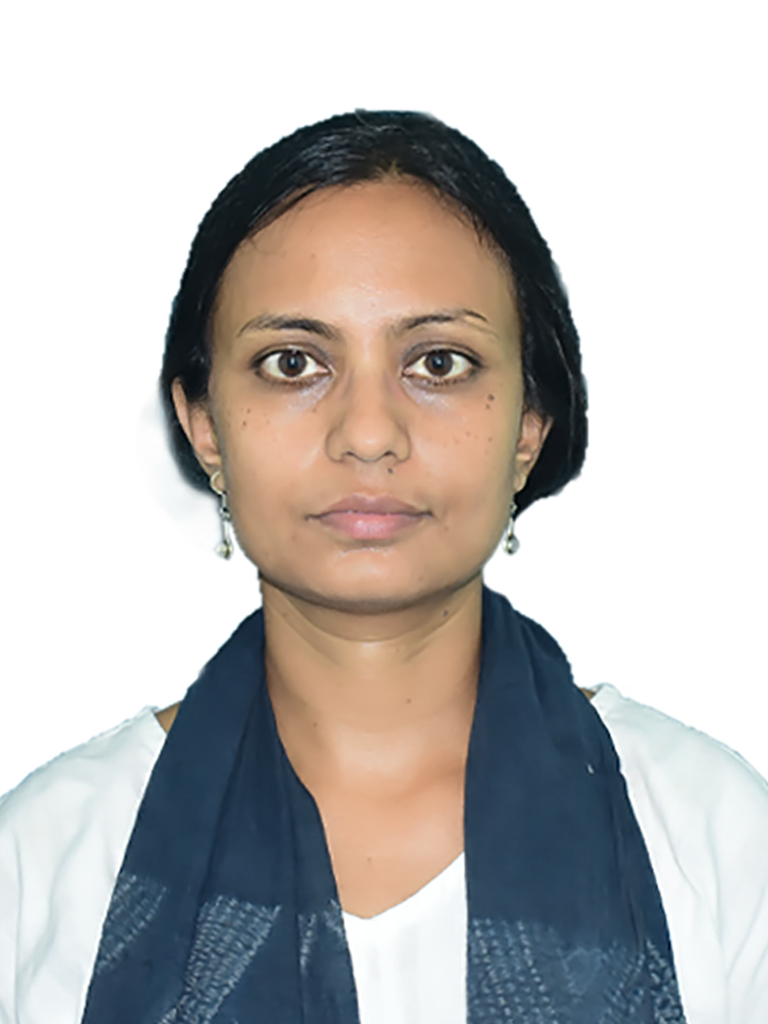
Aparajita Sengupta
IIE Rodman Rockefeller Centennial Fellow
Growing with Women: Creating a Climate-Resilient Organic Growers’ Collective in Ruppur, West Bengal
Fulbright Visiting Scholar, 2021-2022
The project will strive to create an organic farming and marketing collective with 15-30 women in Ruppur, West Bengal, with the wider vision of providing diverse, climate-resilient agrarian and economic models in rural India. The project will help marginal women lease an existing structure in the village to set up a processing unit in order to make products out of organic fruits and vegetables produced/ foraged on village homesteads, build and run an earth-friendly store in the village, provide them with various training sessions to be able to produce, process and market their excess, procure a hand tiller, and allow them to employ skilled personnel as and when necessary. The collective will improve the quality of nutrition for women and children in the area, generate meaningful incomes for women, create climate-resilient farming and animal husbandry systems, and emphasize local and regenerative practices in creating food forests and foraging systems.
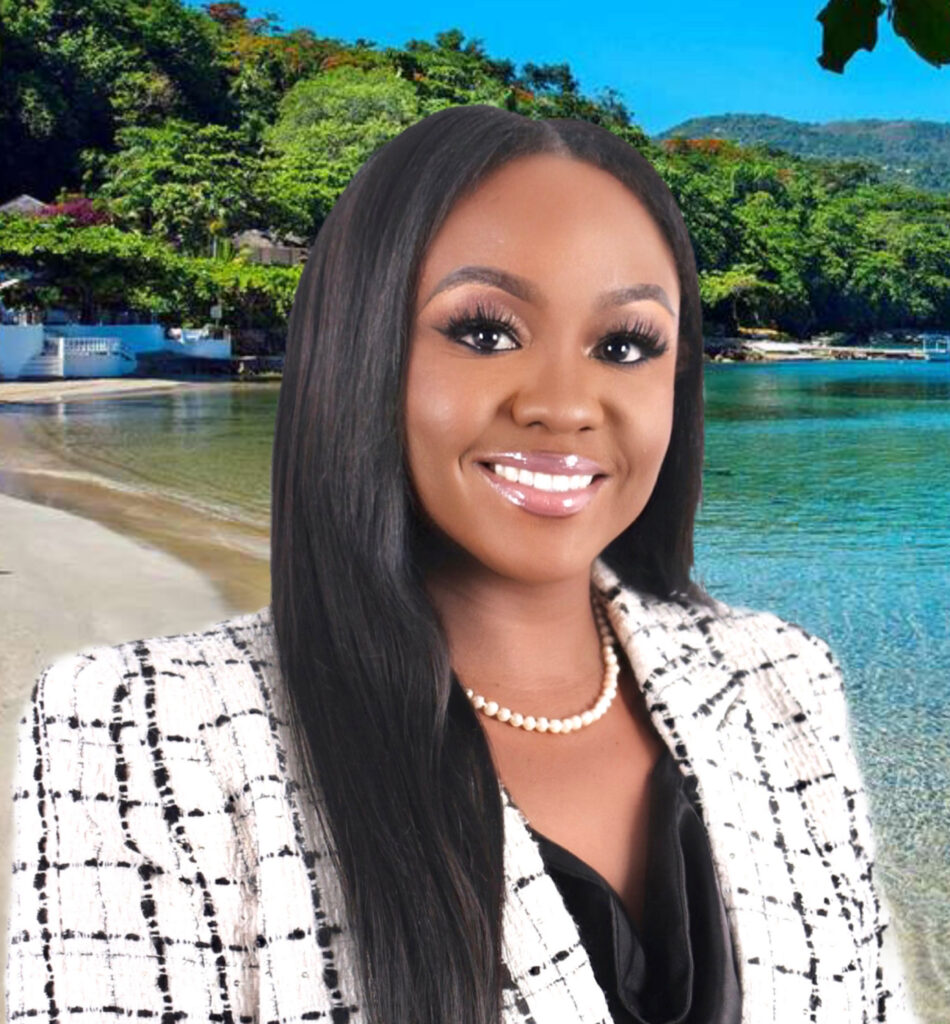
Ren-Neasha Blake Gilmore
IIE Centennial Fellow
Cultivating an ICT-Driven Coastal Resilience and Adaptation Framework in Jamaican Communities: Action, Collaboration, Solutions
Fulbright Foreign Student, 2019-2020
This project builds upon the data collected during her Fulbright experience in both coastal Virginia and Jamaica to bolster the resilience of coastal communities. Through the fellowship, Dr. Blake Gilmore will educate 150 Jamaican citizens on technology-driven solutions for climate change, build an alliance to continue to build on this work, and implement evidence-based strategies that help people adapt to threats caused by climate change through digital tools. The project will perform the first community-centered strategy-building model of the Resilience Adaptation Feasibility Tool (RAFT) in Middlesex County, Jamaica.
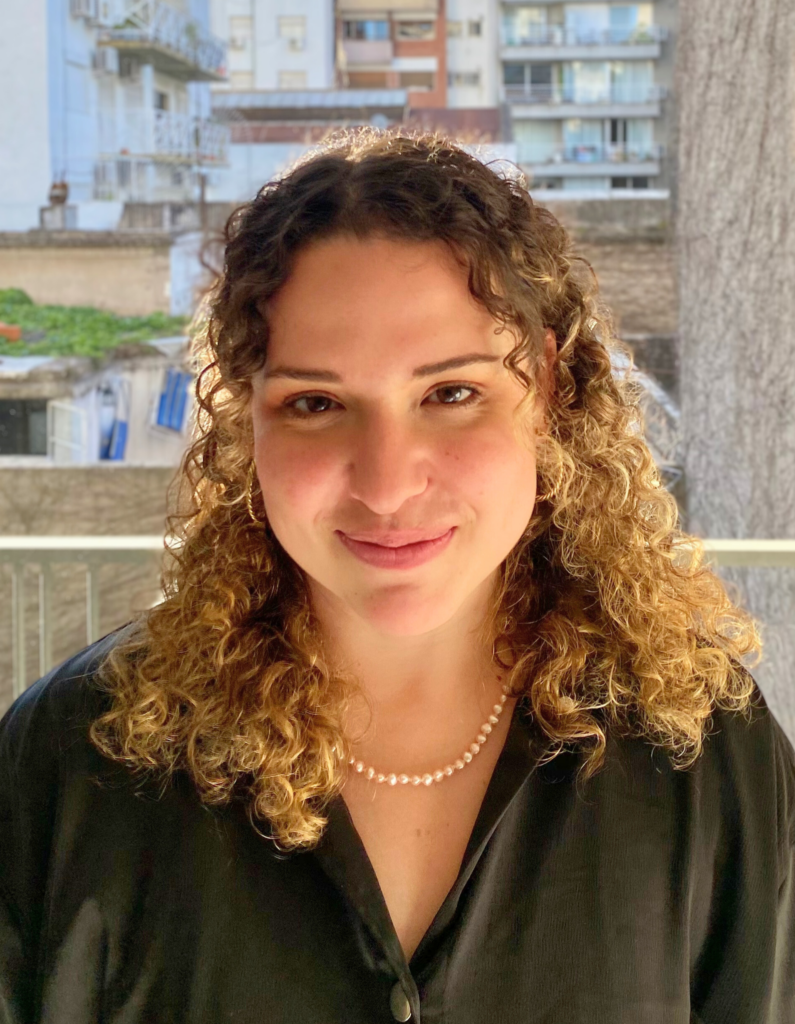
Alyssa Kardos
IIE Centennial Fellow
Re-Made in Cambodia
Fulbright ETA to Cambodia, 2021-2022
The organization aims to position young Cambodians as global leaders in sustainability, by collecting and sorting clothing that pollutes local rivers and recycle the textiles. The project engages Khmer youth aged 18 to 24, who are receptive to and excited by sustainability and actively participate in the fashion industry as consumers or aspiring designers. Through the IIE Centennial Fellowship, they will establish a sorting facility and zero-waste system in Phnom Penh that utilizes local weaving methods and provides employment opportunities for former sweatshop workers. The project seeks to develop a comprehensive understanding of the issue of textile waste in waterways, a deployable and scalable textile waste upcycling system, an empowered and creative workforce, and cross-cultural exchange surrounding Cambodian arts and climate issues.
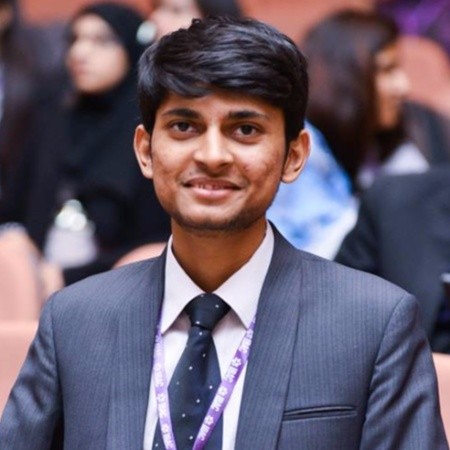
Muhammad Aatir Khan
IIE New Leader
School and Community Gardens and Civic Clubs
Fulbright Foreign Student, 2019-2020
The project aims to establish 50 school/community gardens in secondary schools in Karachi, promoting climate change education and sustainable practices through collaboration with schools, local government, and community stakeholders. The key goal is to raise awareness and engage the youth by providing them an opportunity to take action, ultimately inculcating critical thinking skills and encouraging a solution-based approach in their work. The gardens will provide fresh vegetables, reduce carbon footprint, and add green spaces in the urban environment. Additionally, climate change-themed storybooks, storytelling sessions, and activity-based learning models will be developed for students in lower grades. Civic clubs will be formed in the schools to ensure project sustainability, with support from the provincial education department.
Refugee & Displaced Peoples’ Access to Higher Education 2022-2023 Fellows

Lutfullo Tageov
Rodman C. Rockefeller Centennial Fellow
From Displacement to Socio-Economic Stability: Afghan Refugees in Tajikistan
Fulbright Foreign Student, 2019 – 2020
There are two words that best describe my professional life: Education and Technology. I pursued a master’s degree at Syracuse University in Instructional Design and Development and worked for Hyland Company as Instructional Designer in Ohio. After gaining theoretical and practical knowledge in the USA, I returned to my home country, Tajikistan, and formed the first Instructional design company – Smarthub.tj. Today, we provide educational solutions and the first e-learning management system to businesses and individuals in Tajikistan.
The project is about enabling Afghan refugees to develop in-demand skills by creating and taking online courses and undergo college preparatory training programs to improve their socio-economic life and higher education attainment in Tajikistan. The implementation plan and strategies are unique and based on a thorough analysis of the target population. First, ten Afghan refugees will be hired as interns and undergo on-the-job training to develop online course creation competencies and design and develop four hybrid courses on digital design, copywriting, motion design, and social media marketing. Then, college preparatory training programs will be organized for at least 100 Afghan refugees with follow-up activities to facilitate them with application processes.
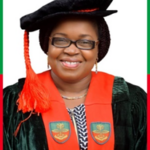
Caroline Emeka-Ogbonna
Rodman C. Rockefeller Centennial Fellow
Bridging Center for Higher Education in Internally Displaced Persons’ Camp in Kaduna State Nigeria
Fulbright Visiting Scholar, 2020 – 2021
Dr. Caroline Obiageli Emeka-Ogbonna is a Senior Lecturer in Department of Languages and the Director, Centre for Critical Thinking, Teaching and Learning (CCTTL) in Nigerian Defence Academy, Kaduna – Nigeria. She has a BA in Dramatic Arts (UNN Nig), MA in English Literature (ABU Nig), MSc in Educational Research (UoE UK) and PhD in Critical and Entertainment Education (UoE UK). Her scholarly interests are focused on the philosophies of Critical Theory with her academic works spanning areas of Critical Thinking, Critical Emancipatory Education, Entertainment Education for Social and Behaviour Change, Critical Approaches to Gender Studies, and Critical Security Studies. She has made scholarly contributions in these areas in both national and international journals and books and has served as Guest Lecturer to various military and non-military institutions. Dr Caroline is an Associate Fellow of UK Higher Education Academy and a Fulbright Visiting Scholar to Kent State University Ohio in 2021.
Her project is to establish a bridging center for higher education in an Internally Displaced Persons’ (IDP) Camp in Kaduna State Nigeria. It aims to increase the equitable access to higher education for the teeming youths who are at the IDP camps due to various security and natural challenges ravaging Kaduna State and Nigeria. The bridging center would be a hybrid platform that seeks to bridge the gap between established higher education institutions and the displaced persons whose conditions of life would ordinarily not allow enrollment into such institutions. In this way, the center facilitates for displaced persons, the opportunities for life actualization and productive contribution to the growth and development of Nigeria.
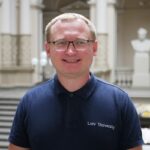
Nazarii Stetsyk
IIE Centennial Fellow
Invisible University for Ukraine: Human Rights and Rule of Law Section
Fulbright Foreign Student, 2020 – 2021
Nazarii Stetsyk is an Associate Professor of Law at Lviv National University (Ukraine) specializing in legal theory, rule of law, and human rights. He uses his professional knowledge for improving the functioning of the judiciary in Ukraine, providing expertise for international organizations (USAID, CoE, OSCE) and domestic authorities. In 2021, he implemented the Fulbright Research and Development Program at the University of Notre Dame School of Law (USA) where he explored U.S. Supreme Court case law on issues of ensuring its stability and development. After the Russian invasion of Ukraine in February 2022, he co-organized the project for displaced Ukrainian students “Invisible University for Ukraine” under the leadership of the Central European University (Budapest, Vienna).
His project consists of organizing and conducting educational activities for displaced Ukrainian students. Nazarii has invited prominent foreign and Ukrainian professors to deliver remote lectures in a dialogue mode on current developments, trends, and challenges to human rights and rule of law globally and locally. Under the supervision of experienced instructors, Ukrainian students will also carry out research projects related to the post-war reconstruction of Ukraine and present them at an award competition. These educational and research activities will allow not only fill the gaps in the education of displaced Ukrainian students, but also confirm valuable international support for Ukraine in this dramatic time and further faith in its success and sustainable development.
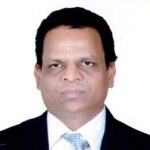
Dev Datta Joshi
IIE Centennial Fellow
Overcoming the Barriers That Refugees and Internally Displaced People with Disabilities Face in Accessing Higher Education in Nepal
Hubert H. Humphrey Fellowship, 2018 – 2019
Through advocacy about inclusion and voting and lawsuits in disability rights, Dev Datta Joshi works to empower Nepal’s population of over 600,000 persons with disabilities, especially in rural areas.
He brings over 20 years’ rich work experience in advancing disability rights in Nepal. As the Founder and Executive Director of Equip for Equality Nepal (EEN), he leads a dynamic team responsible for the development, implementation, and replication of innovative projects such as “Ensure Voting Rights of Persons with Disabilities” to promote the human rights of disabled people in Nepal.
Dev Datta Joshi has demonstrated singular determination in obtaining five post-secondary degrees, including two post-graduate degrees, one of which is an LLM from an internationally respected law and disability rights program at the National University of Ireland (Galway), at the Centre for Disability Law and Policy. He has won several international awards. Dev was awarded the Open Society Foundations Fellowship at the Institute for Research and Development on Inclusion and Society at York University in Toronto in 2015. In 2018-2019, during his Humphrey Fellowship, he was interested in studying the Americans with Disabilities Act, legal representation of people with disabilities, and the relationship between disability rights and international human rights.
His project “Overcoming the Barriers That Refugee and Internally Displaced People with Disabilities Face in Accessing Higher Education in Nepal” will:
- Conduct intensive policy level discussions and workshops with education policymakers, Federal Parliament, Ministry of Home Affairs officials, University Deans, University Grant Commission officials to enthuse a human rights-based approach to refugees with disabilities in all spheres of public life.
- Engage organizations of persons with disabilities and other community groups to collaboratively advocate for the right to quality inclusive higher education of refugee and displaced people with disabilities, especially Rohingya refugee girls/women with disabilities.
- Engage key government line agencies to ensure refugee and disability sensitive accessible higher education system, build networks, and provide ongoing training to disability rights advocates and broader civil society.
Access & Equity for BIPOC and Marginalized Communities 2021-2022 Fellows

Abdelhaleem I. Khader
Rodman C. Rockefeller Centennial Fellow
Towards Sustainable Farming in Rural Areas of the West Bank Palestinian Territories
Fulbright Visiting Scholar to the United States, 2018 – 2019
Abdelhaleem Khader is an Associate Professor of Environmental Engineering at An-Najah National University in Nablus. He received his Ph.D. degree from Utah State University in Logan, Utah, USA in 2012. He was a postdoctoral fellow at McMaster University in Hamilton, Ontario, Canada from 2012 to 2013. His recent research and project interests center on sustainability, air quality, solid waste management, and water and groundwater quality. His project “Towards Sustainable Farming in Rural Areas of the West Bank Palestinian Territories” will teach sustainable farming practices to young agricultural engineers and local farmers from rural areas in the West Bank. The trainees will practice on a pilot scale farm in the village of Anza. In addition, a public awareness campaign will be conducted in the local community to share knowledge.
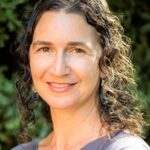
Mneesha Gellman
IIE Centennial Fellow
Emerson Prison Initiative Reentry and College Outside Program (RECOUP)
Fulbright Scholar to Mexico, 2019 – 2020
Mneesha Gellman is an associate professor of political science in the Marlboro Institute for Liberal Arts and Interdisciplinary Studies at Emerson College. She is the author of Culture Kids: Education and Indigenous Language Politics in Mexico and United States (University of Pennsylvania Press, forthcoming 2022), Democratization and Memories of Violence: Ethnic Minority Social Movements in Mexico, Turkey, and El Salvador (Routledge 2017), as well as scholarly articles on methodology, democracy, and human rights issues in journals including PS: Political Science and Politics, the British Journal of Sociology of Education, and Democratization. She is the founder and Director of the Emerson Prison Initiative. She was a Fulbright U.S. Scholar in Mexico in 2020.
The Emerson Prison Initiative brings an Emerson College BA degree pathway to incarcerated students in a men’s medium security prison in Massachusetts. Her fellowship project will build the Emerson Prison Initiative Reentry and College Outside Program (RECOUP), a program to assist in the successful reentry of EPI students when they are released from prison. It will assist returning citizens in pursuing educational continuity and degree completion, as well as other professional opportunities that make use of skills they gain in college.
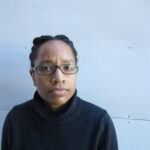
K. Melchor Hall
Rodman C. Rockefeller Centennial Fellow
Transnational Black Women’s Food Sovereignty Project
Fulbright Student to Honduras, 2011 – 2012
Melchor Hall is the author of Naming a Transnational Black Feminist Framework: Writing in Darkness and the co-editor, with Gwyn Kirk, of Mapping Gendered Ecologies: Engaging with and beyond Ecowomanism and Ecofeminism. She is a popular educator who works with students of all ages, and holds degrees from Sarah Lawrence College (B.A.), Temple University (M.S., Computer and Information Sciences) and American University (M.A., International Communication; Ph.D., International Relations). With bodyworker Joanne Daley, Hall co-hosts Café Darkness, a virtual writing community for people of color who meet monthly.
Her project, the Transnational Black Women’s Food Sovereignty Project, honors the farming and food traditions of Black women in Africa and the Americas. It is an investment in networks of women who are feeding entire communities. Foregrounding food sovereignty, or rights to community-controlled, sustainable food systems, the project invests in the small-scale farming and gardening infrastructure of two women’s organizations, in Honduras and Tanzania. During the project, the two organizations will have access to images of each other’s agricultural traditions, gardening practices, and foodways, which are sustaining the minoritized and immigrant women who run the organizations.
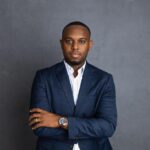
Dr. Jean Olivier Twahirwa Rwema
IIE Centennial Fellow
Developing and Implementing a Harm Reduction Program for People Who Inject Drugs in Kigali, Rwanda (PWID)
Fulbright Foreign Student to the United States, 2016 – 2017
Olivier Twahirwa Rwema is a PhD Candidate in Infectious Diseases Epidemiology at Johns Hopkins School of Public of Public Health (JHSPH). Previously, he completed a Medical Degree at the National University of Rwanda and a Master of Public Health at JHSPH. Dr. Twahirwa Rwema’s current research focus is on understanding the gaps and challenges in HIV and STI programming for key populations in Rwanda and across sub-Saharan Africa to propose evidence-based interventions that are suitable to the context of different countries and respectful of human rights. His fellowship project is “Developing and Implementing a Harm Reduction Program for People Who Inject Drugs in Kigali, Rwanda (PWID)”. This program will include a needle and syringe exchange program to reduce transmission risk of infections secondary to needle sharing and reuse; and an overdose prevention program to reduce overdose related mortality. This has the potential to reduce morbidity and mortality among PWID in Kigali. Furthermore, lessons learned from this project will inform national and regional efforts to offer health services to PWID.
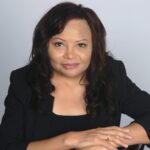
Dr. P. Amina Alio
IIE New Leader
A Stakeholder-engaged Approach to Addressing Safe and Respectful Maternity Care in Niger
Fulbright Scholar to Ghana, 2017 – 2018
Amina Alio has extensive experience in community-based participatory research, qualitative and quantitative methods, and evaluation design. Her research areas include racial/ethnic health disparities and global health. Specifically, she focuses on the impact of cultural, psychosocial and behavioral factors on pregnancy outcomes, particularly among African Americans. Her international research is in women’s reproductive health, HIV/AIDS prevention, gender-based violence, and pregnancy outcomes in sub-Saharan Africa.
Women are most vulnerable during childbirth, and those from ethnically and/or economically disadvantaged groups are most at risk of physical and verbal abuse during labor and delivery. Obstetric violence has important consequences for women and newborns, from the human rights perspective as well as health outcomes. Her study, “A Stakeholder-engaged Approach to Addressing Safe and Respectful Maternity Care in Niger”, proposes a community engaged approach to understanding Obstetric Violence in Niger from a holistic perspective, delving deeper into the socio-cultural norms and identifying provider-training needs. These findings will inform the adaptation of existing training programs for providers and interventions aiming to increase awareness of maternal reproductive rights.
COVID-19 Pandemic 2020-2021 Fellows

Anthonia Carter
IIE Centennial Fellow
Closing the Opportunity Gap Between BIPOC-led Startups and VC Investments Amid the COVID-19 Crisis in Birmingham, Alabama
2017-2018 Fulbright U.S. Student to the United Kingdom
Anthonia Carter, a native of Birmingham, Alabama, is a PhD student in Information Science at Cornell University. She explores research opportunities at the intersection of design-led innovation, machine learning, and visual art to help shape better futures centered around the perspectives of marginalized voices. In 2017, Anthonia was awarded a Fulbright fellowship to pursue a master’s degree in Multidisciplinary Innovation at Northumbria University in the United Kingdom. There, she used a design-led approach to help enterprises realize innovation opportunities. Before studying at Northumbria, Anthonia graduated with dual (Bachelor’s and Master’s) degrees in Mathematics and a Bachelor of Fine Arts degree in Art Studio from the University of Alabama at Birmingham.
Your project and its significance: My project is a series of design-led interventions to identify the unique challenges that BIPOC founders (based in Birmingham, Alabama) face due to the COVID-19 and address the opportunity gap between BIPOC-led startups and venture capital funding. The global COVID-19 crisis has affected every business, but it has exacerbated underlying challenges that BIPOC-owned startups face in obtaining rapid growth and sustainability, including limited access to capital. With this work, I make headway in tackling the venture capital industry’s systemic lack of diversity by identifying strategies to increase access to opportunities, funds, and wealth for BIPOC startup founders.
What are you most looking forward to with the project: This project builds upon work done at Northumbria University School of Design during my Fulbright year. I am delighted to work with faculty at Northumbria again and engage in an international research collaboration. I am looking forward to working with BIPOC founders of high-growth potential startups to co-create pandemic-proof business strategies. Additionally, I am excited to use this project as a catalyst for long-term research collaboration with venture capital partners to identify ways to boost investment funds to Black and brown businesses.

Jean Max Charles
IIE Centennial Fellow
Non-Governmental Organizations (NGOs) in Haiti: Towards a New Perspective for Reducing Vulnerability and Increasing Public Health System Resilience Amid COVID-19
2019-2020 Fulbright US Scholar in Haiti
Jean Max Charles received a Ph.D. in Global Sociocultural Studies from Florida International University with a particular focus on Non-Governmental Organizations (NGOs), political economy, disaster aid, and development. His scholarship is geared towards examining policies and practices capable of helping NGOs to create possibilities for genuine development transformation into their interventions in the wake of a disaster, particularly in the absence of an effective state. During his Fulbright year in Haiti, Jean Max came to realize the necessity for NGOs to empower the subaltern in the communities and build resilience into their projects if they need to create conditions for sustainable development. Jean is Haitian American and lives in Florida.
Your project and its significance: My project is called “Non-Governmental Organizations (NGOs) in Haiti: Towards a New Perspective for Reducing Vulnerability and Increasing Public Health System Resilience Amid COVID-19.” Previous research has shown that the public health care system in Haiti is extremely vulnerable. My project aims to investigate the policies, practices, and habits that can help in reducing vulnerabilities and increasing public health resilience in Haiti in times of pandemics, especially during COVID-19. It is significant because it particularly intends to analyze the place of NGOs in this regard, due to the extraordinary role they play in almost every aspect of the country’s functioning.
What you are looking most forward to with the project: I am most looking for good practices, habits, and policies that can allow the Haitian population to face COVID-19 and recover quickly from COVID-19, and encourage NGOs to promote those practices, habits, and policies with the perspective of building a resilient public healthcare system in Haiti. In this way, I am fundamentally looking at what can be done at the community level. This requires a double edge strategy consisting of tackling what makes communities vulnerable in the first place and building in resilience into public healthcare delivery. The role of NGOs is central to the implementation of this strategy.

Dr. Moumini Niaone
Rodman C. Rockefeller Centennial Fellow
Radio Health Information Network in Burkina Faso
2016 – 2018 Fulbright Foreign Student to United States
Dr. Moumini Niaone is a medical doctor, specializing in social, community, and behavioral health. He is also a certified health education specialist. He co-created Pull for Progress, a multidisciplinary non-governmental organization that uses intervention based on scientific evidence and driven by theories, to foster sustainable community change within underserved communities. In addition, he teaches at the Department of Public Health at the School of Medicine of the University Ki-Zerbo, in Ouagadougou, Burkina Faso.
Dr. Niaone also established a collaboration with the Center for Medical Humanities and Ethics at the University of San Antonio, Texas, to support community health clubs in the Central East of Burkina Faso. These clubs were set up to help save lives by educating communities on important health practices relating to water, hygiene, and sanitation. He is now working on a peace building project using community radios, with the US-based NGO, Developing Radio Partners.
Your project and its significance: My project is about helping my country cope with a growing critical instability issue causing a significant increase in violent incidents since 2015. I plan to use community health clubs that I helped establish beginning in 2014, as peace-building agents using community-based radio. The clubs are made up mostly of women and, in general, women have been most negatively impacted by conflict, insecurity, and the lack of peace in our country. We plan to train a core group of women on how to produce radio programming aimed at sparking discussions on fostering social cohesion. My project is significant because we are giving a voice to women who are often not heard from in discussions relating to peace and yet they are often impacted more than anyone else. I believe through the radio programs, we can help bring about important discussions on teambuilding as well as problem-solving and, in so doing, have a significant impact on reducing violent extremism and increasing social cohesion.
What you are looking most forward to with the project: I am most looking forward to working with the community health clubs to create a platform for people throughout the community to engage on the issue of violent extremism. We formed these health clubs to help save lives by educating communities on important health practices relating to water, hygiene, and sanitation– and they gained the public’s trust. Now, through this project, Peacebuilding and improving public health through Community Radio, we are extending this in-person engagement to a more public forum – and through radio we will be able to reach a much bigger audience of up to 200,000 people.

Molly McDonough
Rodman C. Rockefeller Centennial Fellow
Training Underrepresented Minorities in STEM While Hunting for Animal Hosts of Coronaviruses
2017-2018 Fulbright U.S. Scholar to Kenya
Molly McDonough is an Assistant Professor of Biology at Chicago State University where she specializes in bioinformatics and evolutionary biology. Additionally, she holds honorary research appointments at the Field Museum in Chicago, the National Museum of Natural History in Washington, D.C., and at the Natural Sciences Research Laboratory at her alma mater, Texas Tech University. Molly was a 2017-2018 teaching and research Fulbright fellow in Narok, Kenya where she taught Conservation Genetics at Maasai Mara University and conducted genetics research with undergraduate and graduate students. Throughout her career she has participated in development of infrastructure and implementation of training in mammalian biology across three continents, including the African countries of Botswana, Djibouti, Kenya, Uganda, and Zambia. She is passionate about international fieldwork and training the next generation of scientists, particularly underrepresented groups in STEM.
Your project and significance: My project will apply next-generation sequencing technologies to museum specimens housed at the Field Museum in Chicago to better understand the evolutionary history and origins of betacoronaviruses. Typically, viral surveillance involves screening wild populations of animals; however, given that fieldwork has been halted due to the pandemic, unlocking the vault of the vast collections of tissues housed in museum collections provides a unique opportunity to understand the host and viral diversity for coronaviruses. Equally important to advancing our knowledge of this pathogen, this project will also increase opportunities for participation in STEM research for unrepresented groups.
What you are looking most forward to with the project: I am excited about this project because it involves a really collaborative team that includes a combination of early career and seasoned scientists that will work together to train the next generation of scientists. I am especially looking forward to sharing the joys of scientific discovery with undergraduates from Chicago State University. In particular, I am looking forward to engaging with students in multiple settings, through mentorship, wet-lab work, and computational work, including training opportunities at McMaster University’s Ancient DNA Centre (Ontario, Canada) and the Field Museum in Chicago.
Global Challenges 2019-2020 Fellows

Sabrina Verleysen
Rodman C. Rockefeller Centennial Fellow
Project Buku Buku in Indonesia
2018-2019 Fulbright ETA to Indonesia
Sabrina Verleysen is a Research Associate at The Cohen Group, based in Washington, D.C. She is the co-founder of Project Buku Buku, a global campaign to tackle literacy in rural regions of Indonesia, which she began during her Fulbright fellowship to Java. She has previously interned at the Obama Foundation and the United Nations International Fund for Agricultural Development in Rome, Italy. Sabrina graduated from Villanova University, where she specialized in Communications and Spanish Language and Literature. Sabrina is 23 years old and from Pennsylvania, USA.
Your project and significance: My project, Project Buku Buku, is a community-based literacy program to enrich the lives of girls in rural Indonesia. It is significant because it has the potential to positively impact the lives of thousands of girls. By equipping them with the both the resources they need through English lending libraries and scholarship opportunties, girls in rural Indonesia are able to accomplish their dreams and pursue opportunities that may traditionally be outside of their sphere. Project Buku Buku represents possibility, opportunity, and girls who are equipped to create better tomorrows.
What you are looking most forward to with the project: I am most looking forward to returning to Indonesia where I will build relationships with language educators, create life changing opportunities for students, and most importantly, empower girls to reach their full potential. I am excited to continue to be an advocate for the Indonesian education system and a cultural ambassador for the United States. I look forward to working with corporate sponsors, universities, and non-profits alike in the United States to establish impactful, effective, and sustainable solutions to increase literacy in rural Indonesia.

Paige Balcom
Rodman C. Rockefeller Centennial Fellow
Takataka Plastics in Uganda
2016-2017 Fulbright Student to Uganda
Paige Balcom is a PhD student in mechanical engineering at the University of California Berkeley focusing on heat transfer and development engineering. She has a deep passion for using engineering to improve people’s lives in developing countries. After living for a year in a Ugandan village while on a Fulbright research grant, Paige fell in love with the people and culture of Uganda and now considers Gulu her second home. Her ultimate goals are to teach engineering at Ugandan and U.S. universities, start social ventures to empower Ugandans, and promote international cooperation among students. In college, Paige appeared on Shark Tank and has been awarded graduate fellowships from the National Science Foundation, UC Berkeley, InFEWS, Tau Beta Pi Honor Society, and the American Society of Mechanical Engineers.
Your project and significance: Takataka Plastic’s mission is to locally transform plastic waste in Uganda into quality, affordable construction materials. Currently, the waste is burned releasing toxic carcinogens and greenhouse gases, buried in unlined pits and landfills, or littered on streets blocking drains leading to flooding and breeding grounds for malaria-bearing mosquitoes. My project brings the sophistication of modern polymer processing equipment to Uganda by fabricating the machines in-country at far lower costs than importing equipment. Takataka will help eliminate “waste sinks” (areas with no access to recycling), create jobs, improve the environment and public health, and close a loop in the circular economy.
What you are looking most forward to with the project: As an engineer, I am excited to collaborate with Gulu University students and faculty and other engineers to develop our prototypes into full-scale plastic processing equipment. I am also really excited to create job opportunities through my Takataka project for up to 30 Ugandans including kids who live and work on the streets. I am also looking forward to working with my Ugandan partners to change the community’s mindset about plastic waste through education and incentive programs. I look forward to walking along the streets of Gulu free of plastic waste, seeing Ugandans employed, and working with them to transform waste into resources.

Syed Ishtiaque Ahmed
IIE Centennial Fellow
Toward Safe & Sustainable Repairing & Recycling for the Electronic Waste Workers in Bangladesh
2011-2014 Fulbright Foreign Student to United States
Syed Ishtiaque Ahmed is a Bangladeshi citizen and an Assistant Professor of Computer Science at the University of Toronto, Canada. He conducts research in the intersection between Human-Computer Interaction (HCI) and Information and Communication Technology and Development (ICTD). He received his PhD from Cornell University in 2017. He established the first HCI research lab in Bangladesh in 2009. He also launched the first open-source digital map-making initiative in Bangladesh in 2010. He was a Fulbright Foreign Student in 2011 – 2014, an Intel Science and Technology Center for Social Computing graduate Fellowship in 2015, and a Connaught Early Researcher Award in 2018.
Your project and significance: My project is “Toward Safe and Sustainable Repairing and Recycling for the Electronic Waste Workers of Bangladesh.” With every broken electronic device recycled, we save our planet from a lot of toxic materials. However, this is challenging in low-income countries where there is no adequate infrastructure to process e-waste in a safe manner. Like in Bangladesh, most of e-waste is processed in informal markets by people who have little training on safe handling of e-wastes which is creating a threat to their health and polluting the local water, soil, and air. This project aims to address these problems by designing appropriate technologies.
What you are looking most forward to with the project: I am looking most forward to building technologies to save the environment from the damaging impact of electronic waste. I aim to do this by creating awareness among the e-waste workers and designing technologies with them for their safety and environmental protection. I believe that the innovations that will come out of this project will benefit thousands of e-waste workers in Bangladesh, and later in other countries. More importantly, this will contribute to saving the environment of our planet from toxic chemicals used in electronic devices.

Krizia Lopez
IIE Centennial Fellow
Puentes Community Translators in Queens, New York, United States
2013-2014 Fulbright U.S. Student in Nicaragua
Krizia Lopez was a 2013-2014 Fulbright U.S. Student in Nicaragua where she researched how expanding access to sign language is impacting the daily lives and human rights of deaf Nicaraguans. In response to her findings, she founded and ran a chess-based academic enrichment program in Managua to address some of the education gaps. Krizia has worked for Google for the past five years, most recently as Regional Sales Training lead for the Americas and Europe, before helping launch a new school in a low-income neighborhood of Queens, NY as Founding Director of Operations at Valence College Prep. Krizia graduated cum laude with a B.A. from Columbia University and studied abroad in China as a 2010 US Critical Language Scholar. As a student, she worked at Columbia’s Language and Development Lab and also founded the Columbia Foreign Language Initiative student organization. Krizia is originally from Peru and grew up moving around the world before becoming a proud US citizen.
Your project and significance: As international migration increases, so will the need for accessible language translators who understand the experience of linguistically marginalized communities. Puentes Community Translators is a project to build pathways to careers in professional translation for bilingual young adults from immigrant communities. Young adults will build their professional skills and specialized industry knowledge over several months, concluding with professional translation projects with local organizations. Hundreds of millions of economic migrants moved globally between 2017-2019, yet little work is being done to promote long-term socioeconomic integration for immigrants. Language, culture, and knowledge barriers lead to small but significant disadvantages that compound quickly and extend further disadvantages to the next generations. My project’s significance lies in its attempt to break this cycle by increasing the supply of community-rooted translators to reduce language barriers while also opening a pathway for these young adults to increase their economic capital utilizing the language skills they already possess (translation pays on average $50,000 per year — double the pay of minimum wage jobs).
What you are looking most forward to with the project: I am most looking forward to the potential impact of this project and how it can grow from here. Mass global migration and displacement is at the forefront of today’s policy issues, and I believe we must do more to help promote long-term socioeconomic integration of immigrants. As an immigrant to the US myself, I realized early how much language opens doors. In college, as a Fulbright Scholar, and in my professional experiences, I saw directly how valuable language skills and workforce development programs are for people of all walks of life. I see Puentes as the natural sum of all the various life experiences I’ve had: a professional development training organization that helps create a new career path for young adults in marginalized immigrant communities. What better way to lift a community up than by its own linguistic skills and heritage? Societies need to focus on opening new economic development pathways for immigrants that directly integrates their culture and provides economic lift in the host country in order to promote true peace, prosperity, and mutual understanding in today’s increasingly globalized world.